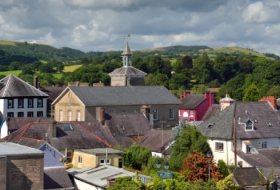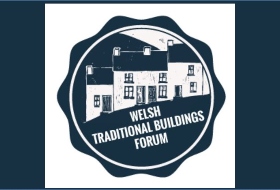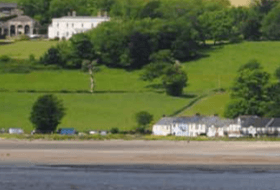Further sources of information
Page updated on: 16/04/2024
The Built Heritage Team are available to answer your queries and they can be contacted at the Tywi Centre. If your proposal is likely to affect a Grade I (one) or II* (two-star) listed building, the character and appearance of a Conservation Area (site over 1000sqm), a Scheduled Monument, a Registered Battlefield or a Grade I (one) or II* (two-star) Registered Park and Garden we strongly advise you approach Cadw for Pre-Application Advice.
Alternatively you may wish to employ the services of a Conservation Architect or Heritage/Planning Consultant who can advise you further at this early stage. Specialist Conservation architects and surveyors will have had to demonstrate to their professional membership organisation (eg Royal Institute of British Architects - RIBA, Royal Institute of Chartered Surveyors - RICS, Chartered Institute of Building - CIOB) that they have recognised conservation experience. They will then be able to call themselves a ‘Conservation Architect’ or a ‘Conservation Accredited member’.
Membership of the Institute of Historic Building Conservation – IHBC is also a sign that a professional is aware of issues relating to the conservation of historic buildings.
We do not endorse or approve consultants, contractors or suppliers, but here are a few simple tips to help you choose the right professional advisor, builder or craftsperson.
Architect or building surveyor
Not all architects and surveyors are used to working with historic buildings and traditional building techniques, so choose someone who:
- Has the necessary skills, knowledge and experience.
- Ideally, has had specialist training in building conservation.
- Belongs to an appropriate professional body, such as the Institute of Historic Building Conservation (IHBC), or is a Conservation Specialist with the Royal Institute of British Architects (RIBA), Royal Institution of Chartered Surveyors (RICS) or Chartered Institute of Building (CIOB).
- Ideally, has been recommended to you as having previously undertaken good work on a historic property.
- Can provide you with details of past projects that they have worked on which are similar to yours and arrange to visit the properties and speak to the owners.
As well as carrying out maintenance inspections on your behalf, an architect or building surveyor will be able to advise you on what needs to be done and how. If necessary, he or she can prepare a specification, make an application for Listed Building Consent, seek competitive quotes from suitable builders, and oversee the project to ensure that it is carried out to an appropriate standard.
Although you will be charged a fee for this work, appointing a professional advisor for anything more than minor repairs may save you money in the long run by ensuring that only necessary work is carried out, that it is properly completed and that you are charged a fair price.
Structural engineer
If you have identified a problem that may affect the structural integrity of your building, such as movement in a wall or roof structure, you may need to seek advice from a structural engineer. In most cases, your architect or surveyor will be able to recommend someone with suitable conservation experience. Alternatively, contact The Institution of Structural Engineers (IStructE) for contact details of suitable engineers.
Builders and craftspeople
It is essential that you choose a builder or craftsperson with the appropriate conservation skills and knowledge for the job in hand. You need to have confidence that they will only do what is necessary. Windows, for example, should be repaired whenever possible, rather than replaced.
Not all builders are used to using traditional building techniques and, so choose someone who:
- Has the necessary skills, knowledge and experience. Ideally, the builder or craftsperson should be able to provide evidence of his or her ability to carry out the work required, which may include possession of a Heritage Skills Card.
- Ideally, has had specialist training in building conservation.
- Ideally, has been recommended to you as having previously undertaken good work on a historic property.
- Can provide you with details of past projects that they have worked on which are similar to yours and arrange to visit the properties and speak to the owners.
A list of Heritage contractors and conservation specialists can be found on the Welsh Traditional Buildings Forum website.
These are not recommended by Carmarthenshire County Council, but do all work on historic buildings.
Planning
Planning Application Guide
- Development Idea
- Do I need a Planning Agent?
- Key Information
- Pre-Application Stage
- Types of Planning Application
- Application submission
- Validation
- Live Application
- Planning Committee
- Appeals
- Compliance / Enforcement
- Completion of Development
Major Planning Applications
Extending / changing your home
- Lawful Development Certificate
- Pre-application advice service
- Householder planning permission
- Neighbouring properties / party walls
- Bats and nesting birds
- Conservation areas
- Listed buildings
Search for a Planning Application
Breach of planning
Change of Use (Planning)
Pre-application consultation (PAC)
Highways planning liaison
Development Viability Model (DVM) Assessment Tool
Sustainable Drainage Systems (SuDS)
Apply for Section 106 funds
Local Development Order (LDO)
Listed Buildings and Conservation Areas
- Understanding listing
- When is listed building consent required?
- Alterations to Listed Buildings
- Applying for listed building consent
- What happens after a decision on listed building consent has been made?
- Works to a listed building without consent
- Maintenance and Repair
- Further sources of information
- Conservation Areas
Conservation & countryside
Street naming and numbering
My Nearest - Planning information
Planning Policy
- Local Development Plan 2006 - 2021
- LDP Review Report
- Supplementary Planning Guidance (SPG)
- Affordable Housing
- Affordable Housing areas
- Annual Monitoring Report (AMR)
- Housing Land Supply
- Community Infrastructure Levy (CIL)
Local Development Plan 2018 - 2033
- Integrated Sustainability Appraisal and Habitats Regulations Assessment
- Delivery Agreement
- Candidate Sites
- Inspector’s Report and Adoption
- Submission and Independent Examination
- Second Deposit Revised Local Development Plan
- Preferred Strategy (Pre-Deposit Public Consultation)
- Development of an evidence base
- Frequently asked questions
- First Deposit Revised LDP
Renewable Energy
Planning Ecology
New phosphates targets
- What action have we taken?
- West Wales Calculator
- Mitigation Measures
- Next Steps
- Phosphates - Frequently Asked Questions
- Teifi Demonstrator Catchment Project
Biodiversity
- Why biodiversity matters?
- Priority Species in Carmarthenshire
- Priority Habitats in Carmarthenshire
- Carmarthenshire Nature Partnership
- HLF Bogs project
- Marsh fritillary project
- Hedgerows
- Woodlands
- Pollinators
- Get out and about!
- Legislation and Guidance
- Protected sites
- Ash dieback disease
- Wildlife in your Ward
- Local Places for Nature
Waste
More from Planning




